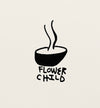FLOWER CHILD COFFEE
Kayu
Kayu
Variety: SL-28, SL-34, Ruiru 11, Batian
Altitude: 1,650 Meters Above Sea Level
Process: Washed
Harvest: November 2024
Notes: Raspberry, Date, Rose & Hawthorn.
Our first Kenyan coffee of the season has arrived! I wanted to start us off with a very special lot that is sure to intrigue and please all types of preferences. If you feel like Kenyan coffee isn't your style, this is likely to change your mind. Kayu's community has been producing some of the cleanest cups you'll find anywhere. This pofile is glossy, multilayered and big bodied; boasting notes of currants, black-raspberry with zips of lemon-lime. Floral phrases add another elegant layer to the this round and piquant profile.
Kayu Coffee Factory is located in Central Province of Murang’a County’s Rwatha subregion, within the Kangema Division near Kangema town. It was established in 1964 and rests on a 7-acre piece of land serving Kayu, Njumbi, Rwathia, and Mihuti villages. Its membership currently stands at 1,191. It’s the oldest coffee factory located near tea-growing zones. The area experiences a biennial production cycle with the early harvest being from March through May and the later second season being from October through December. In line with the rising awareness on the need to conserve the environment, the factory has built 4 wastewater soaking pits. Here, the water used for and acidified by processing coffee is allowed to soak back into the soil in key areas where it won’t contaminate the water table.
Kayu Factory workers get involved with their community farmers. They help with fieldwork like weeding, pruning, spraying and application of fertilizer, mulching, and technical advice. Technical advice is offered through farmer training programs and field visits/days offered by the ministry of agriculture. The field committee checks compliance and advises on best practices, making seasonal rounds from farm to farm. They usually check that coffee is not intercropped with other non-optimal crops like maize and bananas, and promote intercropping with macadamia. They also encourage farmers who have abandoned their coffee plants to come back since prices are so high.
After harvest, all coffee is delivered to the factory and undergoes wet processing. Water is pumped using a diesel engine from the nearby Kagondo River to reservoir tanks for pulping and recirculation. After pulping, coffee is stored overnight, washed, soaked, and spread on drying tables where it receives frequent turning and sorting. It’s then stored awaiting delivery to the miller. To ensure that processing is carried out efficiently the factory has invested in a pulper, a recirculation system, and 33 conditioning bins. The result is an astoundingly clear picture of the varieties grown there: deep berry-date sweetness of SL-28, the bright stone-fruit of SL-34 and small amounts of Ruiru11 & Batian balancing it all out. An exquisite field blend beautifully coordinated by a small town of tightly-knit farmers.
Our coffees are best after two weeks+ of the roast date.
Last roast was June 9th. A few bags remaining.
Couldn't load pickup availability
Share


